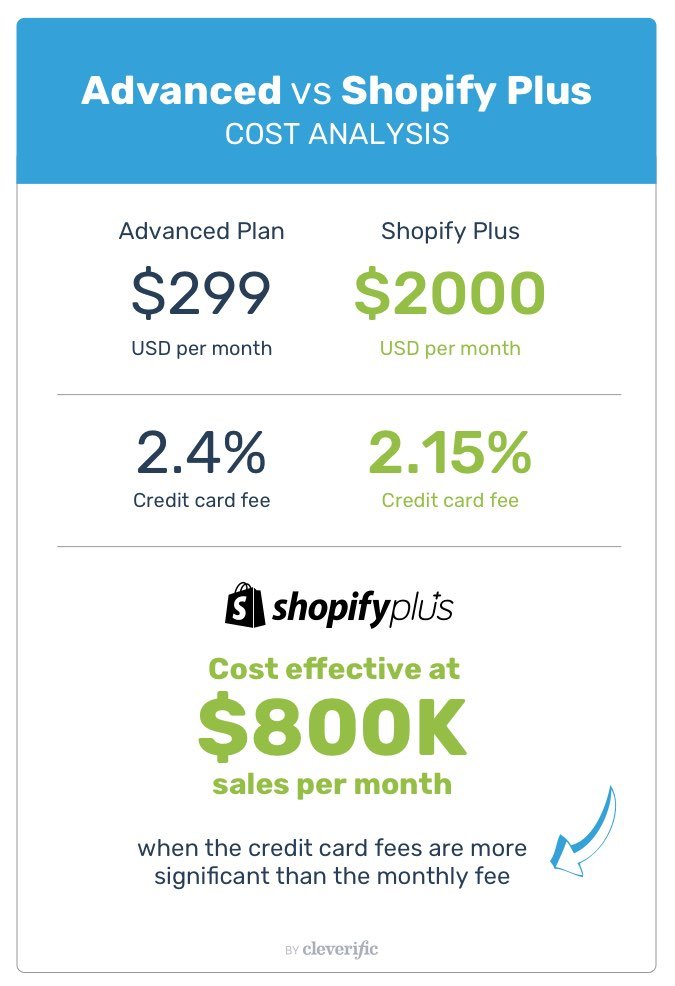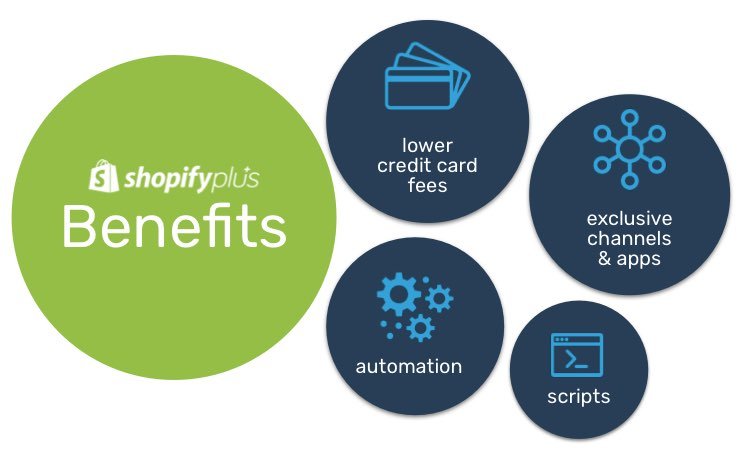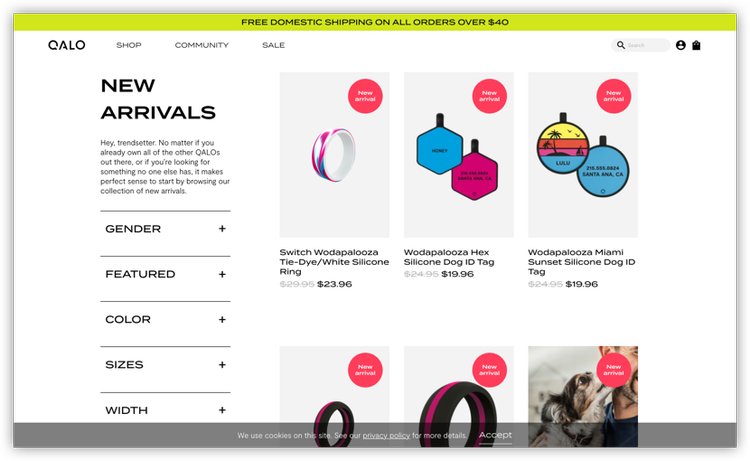
SHOPIFY PLUS
The best, non-sponsored
guide to Shopify Plus
If you're staging for the next growth phase of your business, you've probably landed on this guide to aid your research efforts for the best ecommerce platform to handle your enterprise's specific online operations.
The high-touch, customer-facing experience is essential, but so is the less-glamourous back-end that your team interacts with daily. Your job is to determine when it's the right time to migrate and which platform will give your company the best support.
It’s no secret that we love Shopify. We build on the platform because we believe it’s an amazing tool to prosper entrepreneurship. Helping merchants succeed has been a goal we’ve had in common for a very long time, hence this guide.
In this guide, we'll cover many topics and questions for helping you make better business decisions when considering Shopify Plus, like:
What is Shopify Plus?
Shopify Plus is a product ecommerce engine for enterprises, meant for businesses that are ready to expand into a global omnichannel experience. If you’re considering Shopify Plus, your company should ideally be making a minimum of USD 800k/month in sales (more on this later). Shopify Plus offers flexible features for your technology requirements like:
Automating manual operations
Sandboxes for your development team
Data importing and exporting tools
Reporting
Exclusive sales channels
and more
When is it cheaper to switch to Shopify Plus?
Shopify Plus starts at USD 2000 per month. At what point can you justify that ROI for your business? When is it cheaper to switch to Shopify Plus rather than staying on the Advanced Shopify plan?
We discussed above how your business should ideally be making USD 800K/month. While that's not a requirement on Shopify's side, here's the math to back up that claim:
Shopify Plus starts at USD 2000/month until you make $800K/month in sales. Once you cross that threshold, the monthly cost changes to 0.25% of your sales (up to $40K/month).
Shopify Advanced credit card fees are 2.4%, Shopify Plus credit card fees are 2.15%, saving you 0.25%.
0.25% of 800K = 2000, Shopify Plus becomes cost-effective when the credit card fees are more significant than the monthly fee.
To migrate to a Shopify Plus account you already know it's not a prerequisite to be making USD 800K/month to migrate, so if you're making less, you can still consider a Shopify Plus account for its many great features. However, the monthly plan doesn't become cost-effective until you reach that sales volume.
To migrate to a Shopify Plus account you already know it's not a prerequisite to be making USD 800K/month to migrate, so if you're making less, you can still consider a Shopify Plus account for its many great features. However, the monthly plan doesn't become cost-effective until you reach that sales volume.
Benefits of Shopify Plus
All this talk about cost, but what are you getting for $2000/month? Shopify offers enhanced design, and you may decide that the features alone are worth the upgrade even if you're not hitting that $800K/month mark yet. When you switch, you get access to:
A dedicated Launch engineer and account manager
Lower credit card fees (2.15% compared to 2.4% on Advanced)
Access to Shopify Plus-exclusive apps:
Shopify Flow
Launchpad
Wholesale channel
Transporter app
Bulk account inviter
Scripts
influential in running more complex promotions and customizations to checkout.
Checkout customizations
in-checkout up-sells (last chance to bring up aov), in-checkout rewards redemption, in-checkout live chat.
Bigger bandwidth
More reporting and analysis functionality
Live viewing and product analysis
Inventory
Customer behavior and insights
Marketing
Sales
Profits
and more
Unlimited product creation and staff accounts
Closed Facebook community to talk to other Plus merchants or get app recommendations
Multiple stores for global accessibility
Why not go headless?
Headless commerce means separating the back-end ecommerce operations and functionality, like payment processing and discounts, from the front-end, or “head,” customer-facing website. The separation of the website architecture means that editing something on the back-end won't hinder the font end.
More and more enterprises are opting to go headless because it can give you the creative freedom to rethink your ecommerce funnels, opportunities, and touchpoints to keep up with emerging trends (think back when Instagram shopping was new).
If your platform needs are to prioritize content first and ecommerce functionality second because of your audience's need for content-first education, headless commerce could be a great option.
It's a crafty choice if you have a quick-cycling development team or technology partners to create new functionality into your ecommerce frameworks. Building new experiences will be quicker when your team doesn't have to update both the front-end and back end when deploying a change.
Headless commerce: Getting started
If you've found that headless is the best way forward, you don't have to start from scratch. Shopify is taking steps to offer more headless features with its API. With Shopify Plus, your front-end is entirely your own, but you can still keep all the ecommerce operations for the back end like payments processing, inventory, PCI compliance, etc. Headless with Plus can also unlock more functionality in some apps/services like order management that offers bundle and kitting fulfillment automation.
Your development team can make the transition to headless commerce by accessing Shopify’s Storefront API (GraphQL). This API beckons third-party tools and developers to create an ecommerce storefront to your exact specifications without relying on Shopify’s themes, all while keeping the operational elements of the back-end running.
Successful Shopify Plus merchants
You know the staple Plus merchants like...Staples, Kylie, Gymshark, and other fantastic brands are listed here. But here are a few more that are killing it in their space using Shopify Plus:
Qalo
Qalo specialized in wearable jewelry for an active lifestyle. Their engagement rings are beloved by married athletes and adventure-seekers for their flexibility and injury mitigation.
YouFoodz
YouFoodz is an Australian subscription box company specializing in fresh, chef-prepared meal boxes, snacks, and juices.
Third Love
Third Love is on a mission to make the perfect bra. They quickly took the lingerie market by storm with their virtual fitting room offering and half-cup sizes.
Exclusive Shopify Plus benefits
The classic Shopify Admin keeps its uniform from the outside, so there’s no added learning curve when you upgrade your account. Once you explore, you’ll recognize the enhanced features we’re about to discuss, like the Plus-exclusive wholesale selling channel that lets you create a duplicate, password-protected storefront to manage wholesale clients.
Shopify Plus’s $2k monthly price tag doesn’t only give you the ability to get their lowest credit card and transaction rates. It also has built-in features to meet the intrinsic business needs of high-volume enterprises.
These features will benefit your business most if:
You’re looking to expand into the wholesale market and want a head start
You need trusted technical teams to build for your specific use-case
You’re expanding globally and need to create multiple stores to meet international market needs
Your repetitive tasks (like fulfilling subscription orders) are overwhelming business operations and creating inefficiencies
You need to make changes to Shopify’s checkout for custom fields
Creating multiple stores
Different markets and a global audience require distinct domains, pricing, marketing strategies, product collections, and content. Creating multiple stores lets you position your brand image specifically to the market you’re breaking into, and with Shopify Plus you can do it from one simple login, while easily duplicating content from one store to the other when needed. Shopify Plus allows 10 stores total with a subscription. If you tried to achieve this with other Shopify Plans, you’d have to create and pay for a separate account.
Shopify Plus Partners and certified apps
Shopify’s mature app marketplace makes it a top contender in the ecommerce space, with so much added platform functionality from the quality-checked developer community. Shopify Plus merchants get an added layer of benefits thanks to extra screening to make sure apps can handle the high volume of traffic that enterprises accumulate. Partnering with certified Plus agencies can give you the power to take your store headless and develop selling channel apps for anywhere your customers are.
Automation with Shopify Flow
Shopify Flow
We talk about this automation app a lot around here. Automation takes care of the mounding backlog of tasks, like adding free samples and promo items to orders. Shopify Flow connects you to native and third-party workflows that automate the repetitive tasks of your online store. Your operations have fewer human-made
mistakes in areas like bundle and subscription fulfillment, customer loyalty programs, and fraudulent orders.
More Shopify Plus-exclusive apps
Launchpad
Shopify knows that automation is the successful way to run a business in today’s climate. Launchpad is an automating event scheduler that saves you time with tasks like promotions and campaigns. You’ll be able to schedule and monitor your sales, product launches, and content changes. The downside of this app is that you’re only able to schedule one event at a time.
Transporter app
This app’s superpower is to help migrate merchants from a platform like BigCommerce or WooCommerce to Shopify Plus. Who has time to update key pieces of data one at a time? The Transporter app, available to Shopify Plus merchants, lets you perform actions in bulk. Upload CSV files into the app to bulk import data like order, customer, and product info.
Bulk account inviter
This app is part of Shopify Plus’ migration suite. The Bulk Account Inviter lets you import customer accounts from a different platform, or another Shopify store, and invites your customers to activate accounts on your new store. This app isn’t available on the Shopify App Store, so you’ll have to speak to your account executive to have access, but it has a similar function to the Transporter app.
Wholesale channel
Switching to Shopify Plus gives you an opportunity to break into a new market. Shopify Plus’s wholesale channel lets you create a separate storefront exclusively for your wholesale clients to deliver an experience tailored to them.
Shopify Scripts
Automation and personalization are big themes when using Shopify Plus, and Shopify Scripts lets you create dynamic sales and discounts automatically based on customer segments. Your customers get the personalization they’re looking for, and you’re able to customize the checkout user experience with shipping, product discounts, and payment gateways.
Unlimited bandwidth
In order to be the omnichannel selling giant they claim to be, Shopify Plus comes through with their bandwidth offerings. With unlimited staff accounts, you also get unlimited, unthrottled bandwidth, a doubled API call limit of 4 requests/second, and a platform capable of handling 15, 000 checkouts per minute on a single store. Meaning that customers will only have to wait in an online checkout queue if it’s your product drop strategy, not because of bandwidth limits.
Custom checkout
Enterprises need custom checkout experiences they can tailor to their brand; it’s the most important space in your online store. Shopify Plus merchants can manipulate and customize their cart and checkout code to bring an experience to customers that Standard and Advanced Shopify users can’t access. You can make customizations like special shipping rates, discounts to customer segments, and preferred payment options.
Shopify Plus alternatives
Exploring eCommerce platforms is a daunting business decision that demands a lot of care and research. You have to make sure whichever platform you choose can support your business goals and supplies critical features for your company’s niche. When researching different options, what goals are you trying to accomplish with the platform?
Are you trying to:
Reduce your costs
Add more customizations, and where do they need to be added?
Expand through more selling channels, like wholesale or international markets
Increase operations efficiency (automation)
Be on the cusp of the newest and best user experience for your customers (i.e. AR)
It’s also important to think about your pain points with your current platform or subscription plan, and what’s fueling your search for a new solution in the first place. Do you need help with:
Integrations
Traffic bandwidth
PCI compliance
Manual tasks
Budget-friendly
We looked at the top three competitors to Shopify Plus and evaluated them based on pricing, available customizations, and exclusive tools like automations and account executives.
Shopify vs. Itself
If you’re already on Shopify, does your business really need to switch to Shopify Plus? From the outside, Shopify Plus and other Shopify tiers all use the same admin to conduct internal operations.
Top reasons to switch to Shopify Plus instead of staying on Shopify Advanced:
Credit card rates are more economical and reduced by 0.25% compared to Shopify Advanced credit card rates.
You can create multiple stores from one account to access different markets.
Get exclusive access to Shopify’s wholesale marketplace to break sales records.
Automate redundant operational tasks with exclusive Shopify Plus apps.
Get paired with an account executive to help you get the most out of your account.
Shopify’s top 3 competitors
The ecommerce space beckons many quality SaaS players to the field, but we’re focussing on the big three that you should be considering in your research:
BigCommerce Enterprise
Magento
Salesforce Commerce Cloud
When comparing platforms, we considered Shopify Plus against its competitors for the price (in USD), available customizations, and exclusive tools.
Shopify Plus vs BigCommerce Enterprise
| Features | Shopify Plus | BigCommerce Enterprise |
|---|---|---|
| Pricing |
|
|
| Customizations |
|
|
| Exclusive tools |
|
|
Shopify Plus vs Magento 2 Enterprise Solutions
| Features | Shopify Plus | Magento 2 Enterprise |
|---|---|---|
| Pricing |
|
|
| Customizations |
|
|
| Exclusive tools |
|
|
Shopify Plus vs Salesforce Commerce Cloud - Signature
| Features | Shopify Plus | Salesforce Commerce Cloud |
|---|---|---|
| Pricing |
|
|
| Customizations |
|
|
| Exclusive tools |
|
|
Which enterprise ecommerce solution should you choose?
Your business goals and pain points ultimately decide which platform you should invest in for your online store.
Salesforce is renowned for its selling tools and CRM, though you can integrate with it regardless of the ecommerce platform you choose. It has great native AI tools that will help you stay competitive in a world shifting toward highly-personalized marketing tactics. The biggest complaint from users is the lack of agency partners available for a platform that heavily relies on third-party developers. Users also find that their money is spent more on maintenance of the site rather than building customer relationships, though when you have access to Salesforce CRM, you’re already in good shape.
If you’re looking for the ultimate in flexibility for an omnichannel approach, and have the time and budget for heavy developer work for your customization, Magento is a great platform to streamline your separate sales channels. However, most users' criticisms apply to lack of resources available to manage the platform or having to retain an agency to manage it for them.
If you’re making over $100 million/year, you might want to opt for BigCommerce because of its custom product features that allow for hundreds of variants and SKUs for a single product. Otherwise, Shopify Plus’s exclusive tools for wholesale and automation surpass their offerings as both are simple and flexible platforms.
Shopify Plus is one of the leading and most talked about enterprise solutions thanks to its ease-of-use and platform flexibility. It has a mature app marketplace where you can find custom solutions to almost any ecommerce use case, and many Plus-certified tech partners to build bespoke solutions and allow your company to go headless. It also gives your brand a big competitive advantage if you’re looking to break into the wholesale space by coupling a wholesale channel with their wholesale marketplace, Handshake. You can also help your team get more done with the available automations for customer loyalty, subscription and bundle fulfillment, and more.
Now that you know the basics of Shopify Plus, let’s dive into more details
Compare Shopify vs Shopify Plus and find out which is the right fit for your business
See 4 ways Shopify Flow automation can improve your sales numbers and boost your efficiency



















